Zakat Fitrah 2025: Apa yang Perlu Anda Tahu
Zakat Fitrah 2025: Apa yang Perlu Anda Tahu Zakat fitrah

























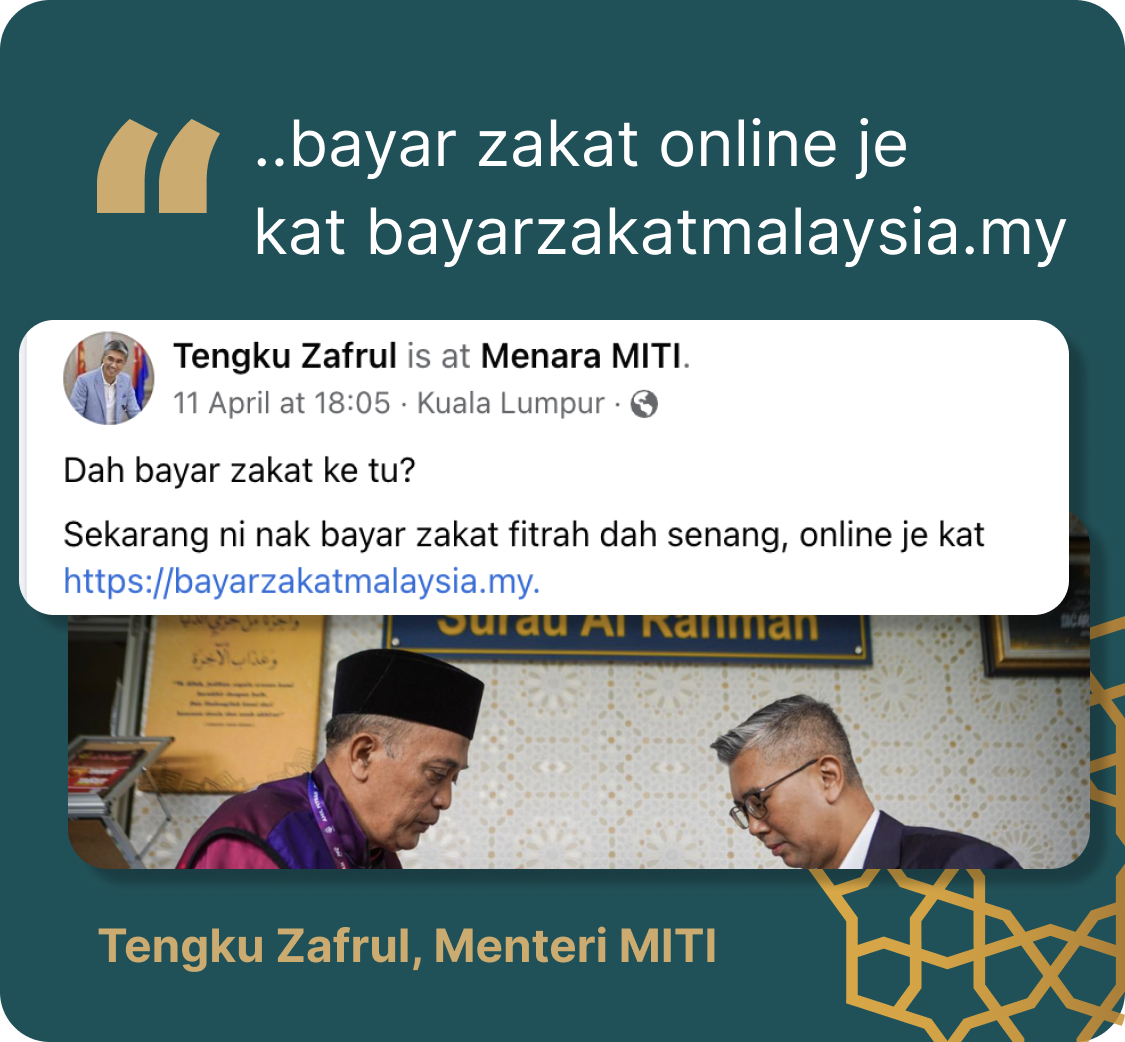




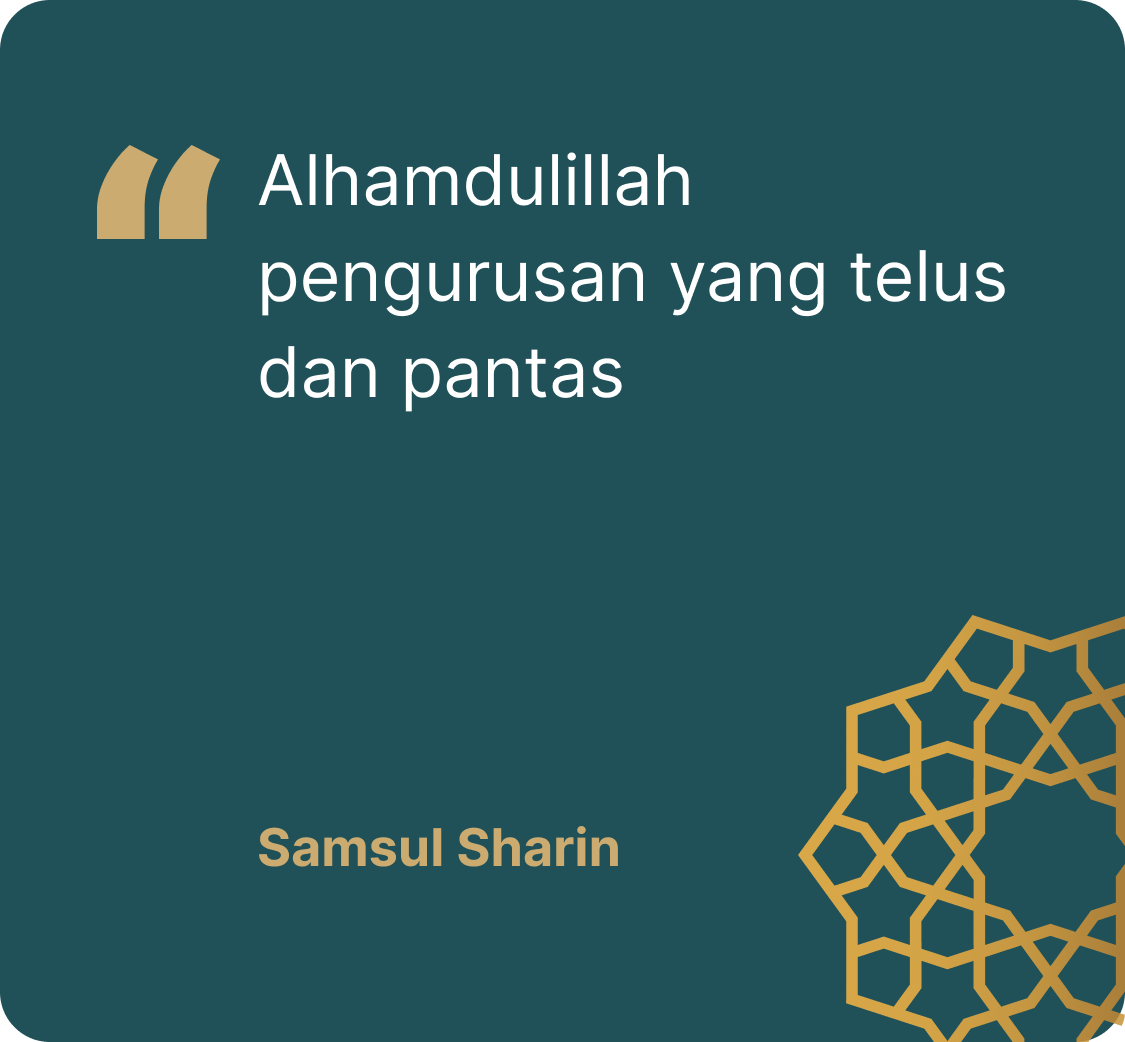


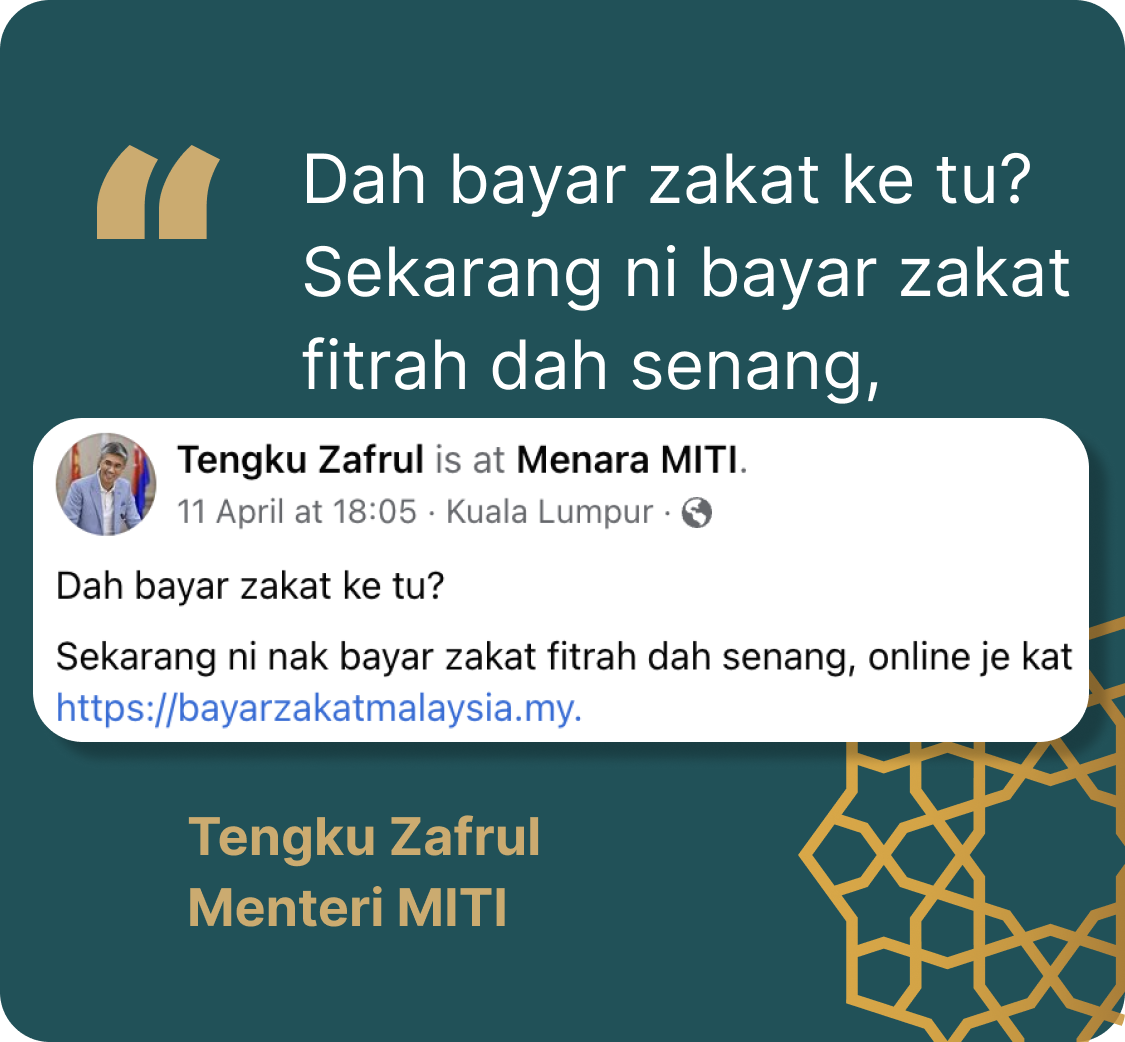
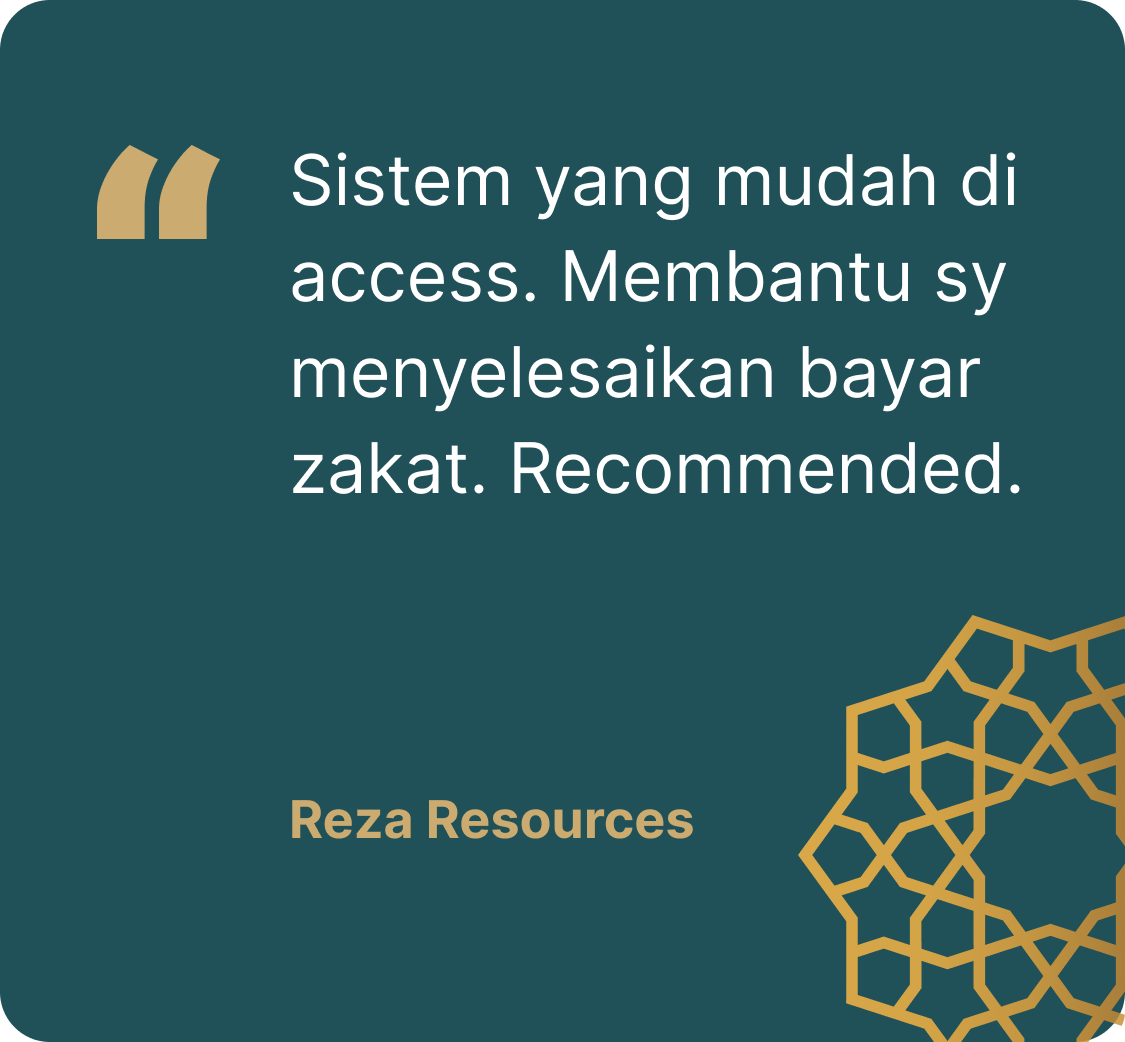
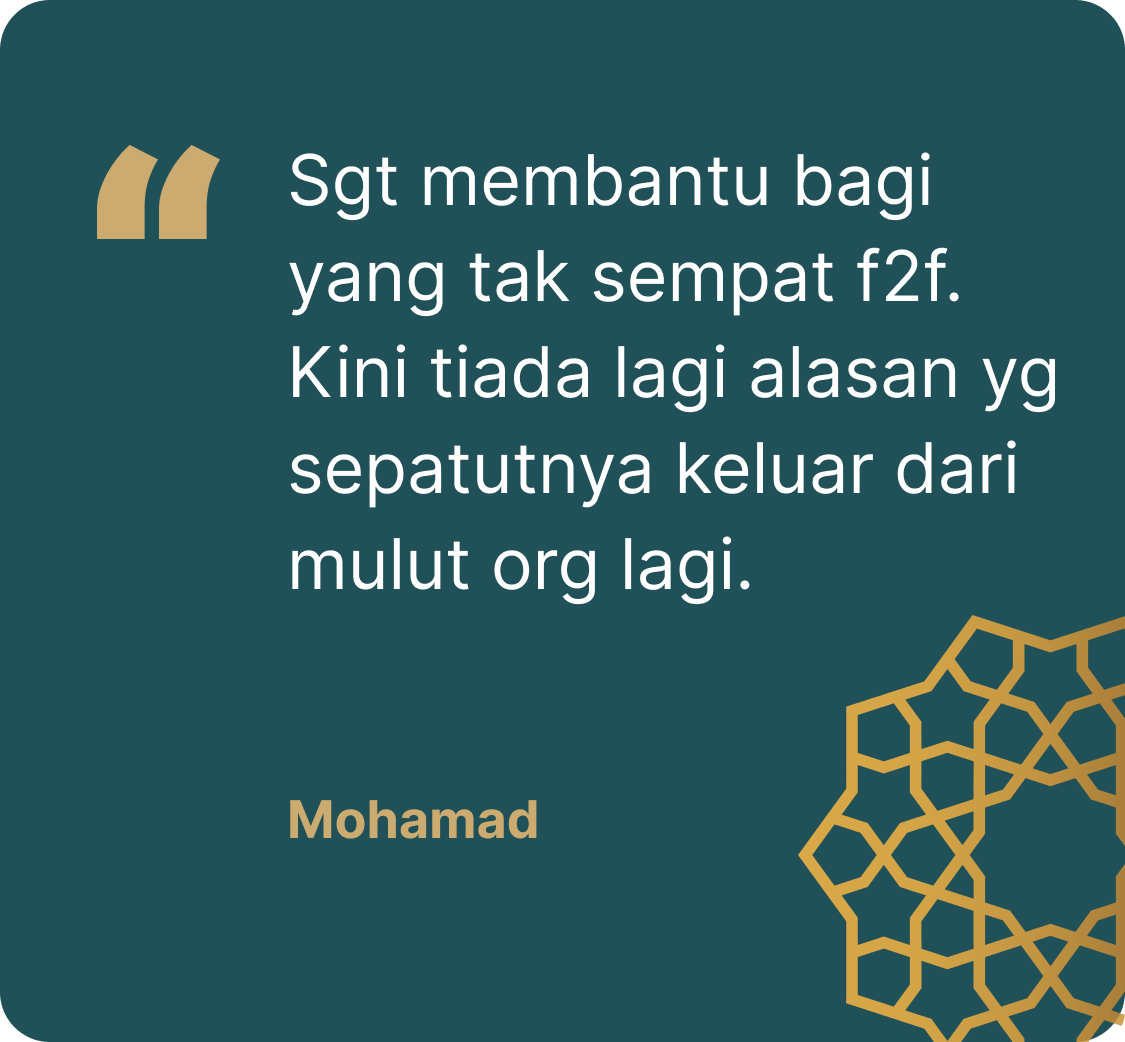



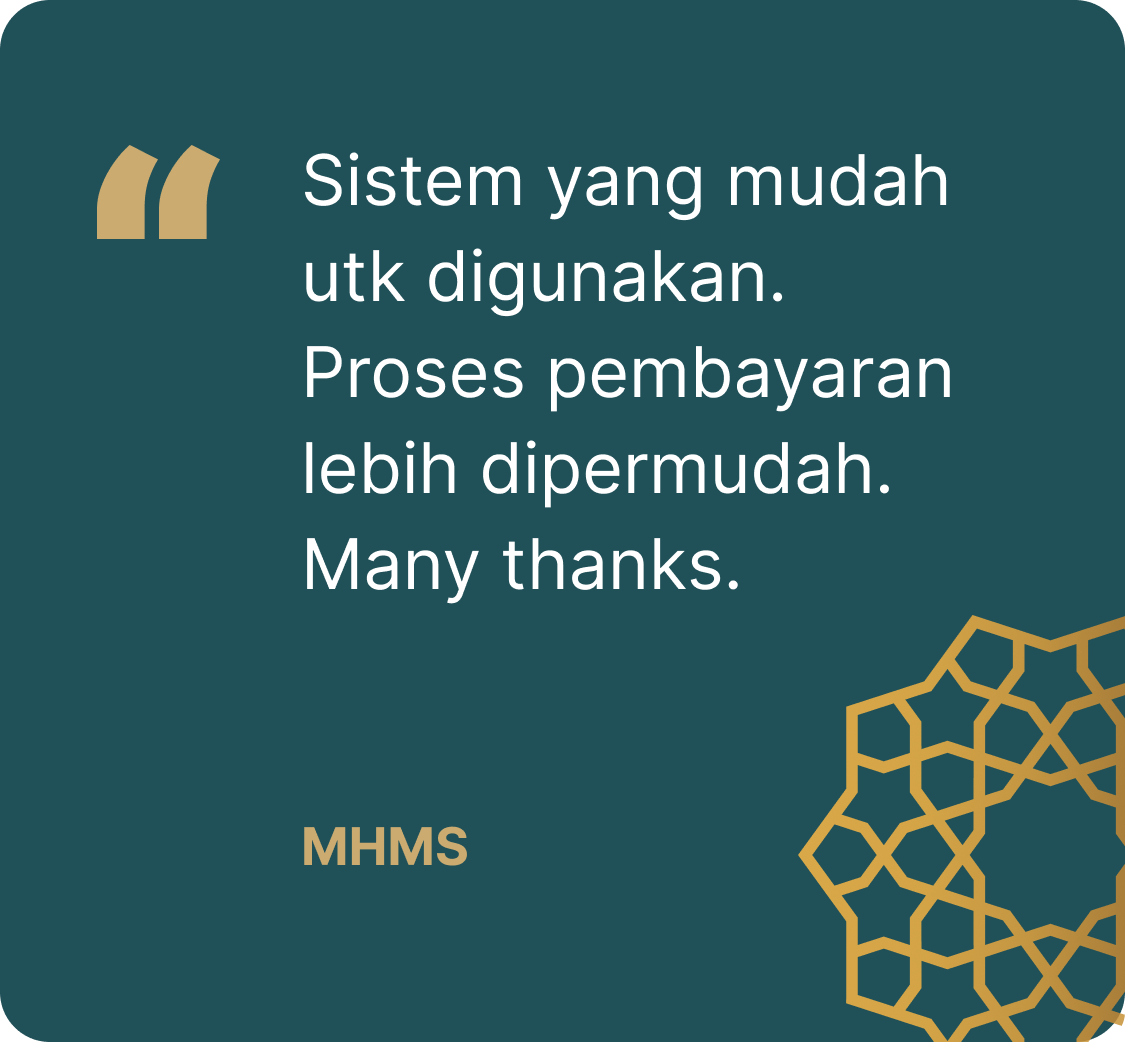





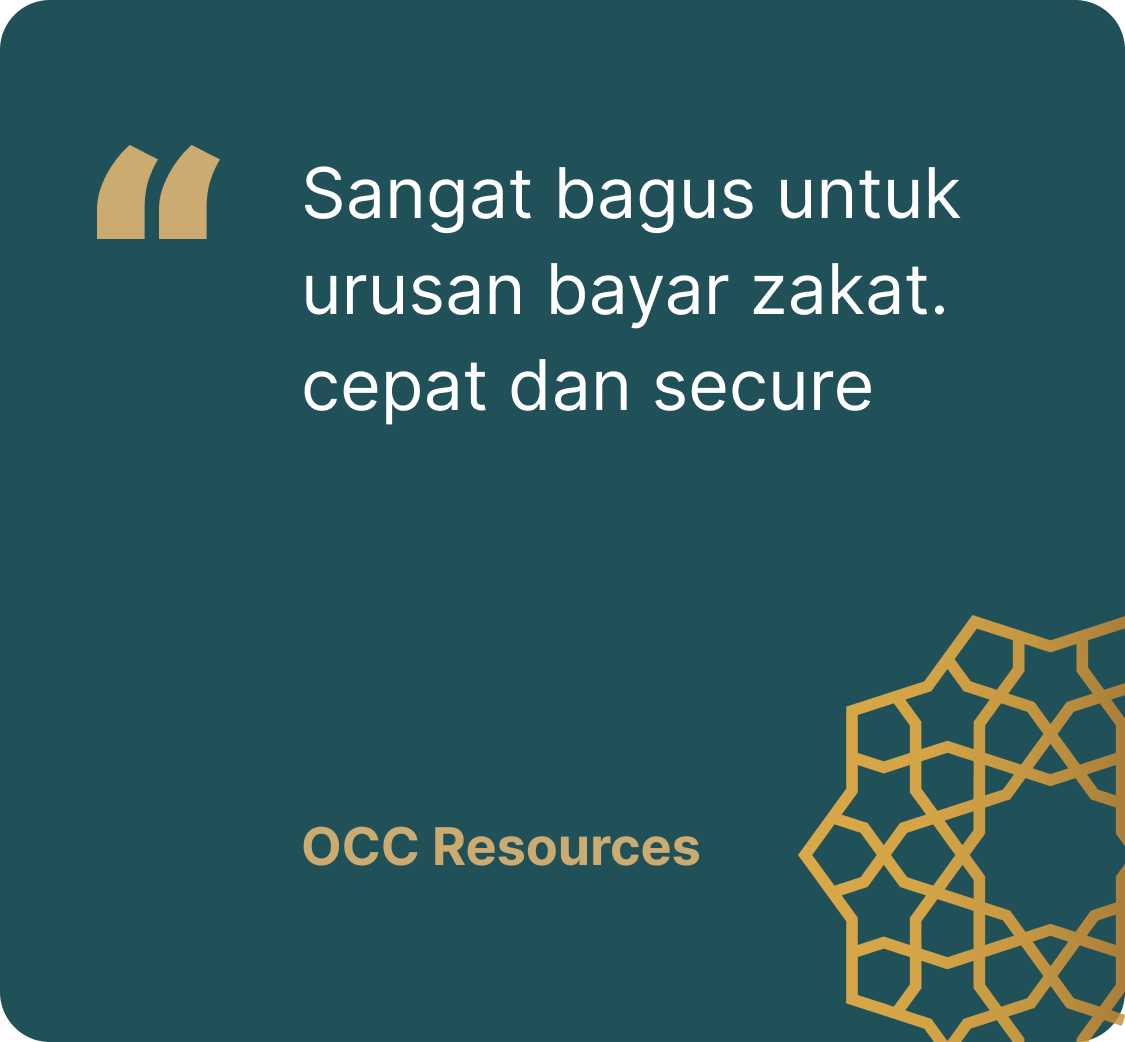
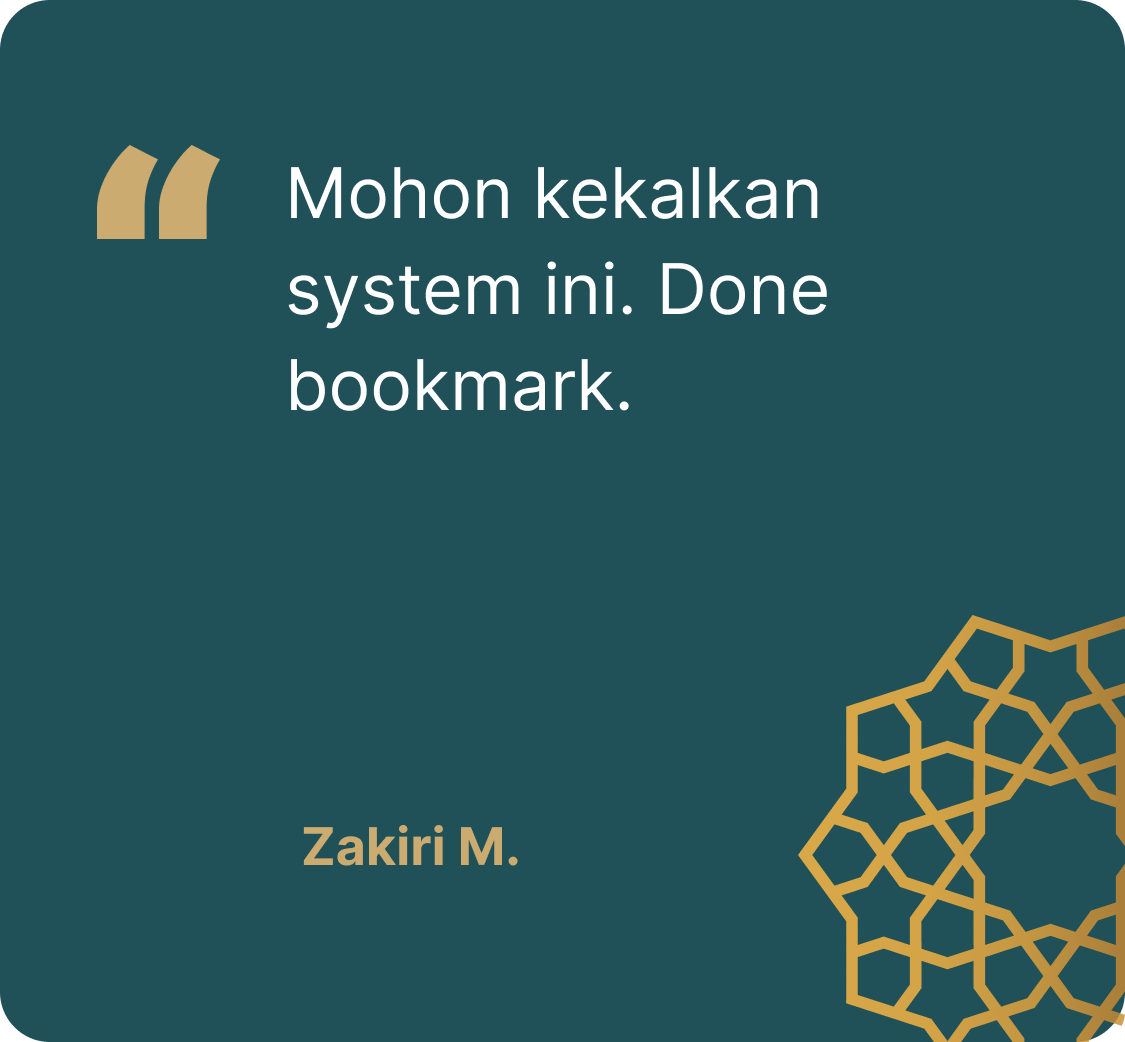





Zakat payers will receive 100% tax rebate from the Inland Revenue Board of Malaysia (LHDN)

Company will receive a 2.5% tax rebate from the Inland Revenue Board (LHDN).
Your zakat payment will go directly to the bank account of the Selangor Zakat Board, without passing through any other entity's account
The collection of Zakat proceeds is directly channeled to Asnaf groups in Selangor through the Selangor Zakat Board
Zakat payers will receive 100% tax rebates from the Inland Revenue Board of Malaysia (LHDN)

Company will receive a 2.5% tax rebate from the Inland Revenue Board (LHDN).
Your zakat payment will go directly to the bank account of the Selangor Zakat Board, without passing through any other entity's account
The collection of Zakat proceeds is directly channeled to the Asnaf groups in Selangor through the Selangor Zakat Board



Zakat Fitrah 2025: Apa yang Perlu Anda Tahu Zakat fitrah

Ibu Bapa Bayi ‘Ditahan’ dalam Peti Sejuk Diminta ke Lembaga

PPZ-MAIWP terima RM27.6 juta zakat perniagaan KUALA LUMPUR – Pusat

Sultan Nazrin Berkenan Terima Zakat Perniagaan RM13.7 Juta Sultan Perak
Copyright 2025 © All Rights Reserved. bayarzakatmalaysia.my
Copyright 2025 © All Rights Reserved.
bayarzakatmalaysia.my

Money that is deposited monthly into the Employee’s Provident Fund (EPF – or KWSP, for Kumpulan Wang Simpanan Pekerja) is part of an employee’s income that is kept in an employee savings account. Withdrawal of funds from the account is subject to the EPF act, even though all the money in the account is yours. Thus, the Withdrawal Scheme introduced by the EPF is subject to Property Zakat which should be paid by the contributor after the funds are withdrawn.
It is important to note that unlike investments, money that is still in the savings period is not counted as zakat, because it is not yet fully owned by the account owner. Once the money is released it means that it has reached the condition where it has become the full property of the contributor. Since the concept is the same as savings, EPF withdrawals are also subject to zakat.
The 74th Fatwa Committee Meeting of the National Council for Malaysian Islamic Religious Affairs convened in July 2006 and decided that:
According to the mahzhab of Imam Syafie, zakat on property must be paid when the nisab and haul period are sufficient. EPF money is a savings property, so zakat must be paid when it is issued/released and both conditions are met.
Scholars are of the opinion that zakat on property can be issued earlier if the condition of the property is sufficient for its nisab. Accordingly, the muzakarah (discussion or dialogue by a group of Islamic scholars) decided that the Decision of the National Fatwa Committee in November 1982 be amended as follows: Contributors are encouraged to pay zakat immediately after withdrawing EPF money if they have sufficient nisab without waiting for a year’s haul.
How to calculate Zakat on EPF depends on two situations:
A) Before reaching the age of 55 (ownership is not complete):-
2.5% of the total withdrawal of EPF money is required as zakat. If the amount of withdrawal is below nisab, it should be added to other income.
Example:
Let’s take the amount of nisab for the year 2023, which is RM23,035. Mr. Ali, who is, 35 years old, withdraws EPF money of RM10,000 from the i-Sinar Scheme**. Even though this amount is less than the nisab amount, and it hasn’t been a full year since it was taken out, zakat still needs to be paid on the withdrawal according to the decision made by the Fatwa Committee meeting.
Thus, the amount of zakat to be paid would be calculated this way: RM10,000 X 2.5% = RM250.00
**According to the types of withdrawals that are required to pay zakat such as the i-Lestari Scheme, Education Withdrawal Scheme etc.
B) After reaching the age of 55 (perfect ownership):-
When someone reaches retirement age – either 50, 55, or 60, or in between, they can withdraw all of their EPF money, or withdraw their money bit by bit, as if from a savings account. However, no matter the method of withdrawal, or the amount, 2.5% on the entire EPF money in the individual account is subject to zakat similar to zakat on savings, as there is no more deduction of EPF contributions on income.
Thus, zakat on EPF should be paid on the savings every year, at the rate of 2.5% out of the entire savings amount. By this time, EPF savings should be treated as normal savings and zakat paid as such.
In conclusion, paying zakat on EPF is a responsibility that needs to be taken into account by every individual who has savings in EPF. Zakat on EPF is charged on EPF savings that have reached certain nisab and age requirements, and certain withdrawals such as cash withdrawals of RM10,000 before. Zakat on EPF calculations can be made using formulas and predetermined rates, and zakat on EPF payments can be made on Bayar Zakat Malaysia.
No matter how much EPF savings we have, we need to always remember that zakat on EPF is a form of gratitude towards Allah and shows our responsibility as a Muslim who has faith and piety. So, let’s make EPF zakat a priority and remember to fulfill this responsibility wholeheartedly.